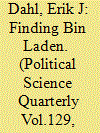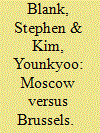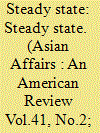| Srl | Item |
| 1 |
ID:
133219


|
|
|
|
|
| Publication |
2014.
|
| Summary/Abstract |
MUCH OF THE DISCUSSION ABOUT THE HUNT FOR and killing of Osama bin Laden has focused on the remarkable abilities of the U.S. Special Operations Forces who carried out the raid. Accounts by journalists and others revealed more than was previously known about the Navy SEALs who were involved, and sparked complaints by critics that the Barack Obama administration had leaked sensitive information in order to portray its own actions in a positive light.1 Terrorism experts have debated whether the killing would weaken al Qaeda, and what it would mean for the future of international terrorism.2 And other scholars and analysts have considered what the story of bin Laden's death reveals about American national security and foreign policy decision making. Graham Allison, for example, writes that "this case demonstrates that the U.S. government is capable of extraordinary performance in extraordinary circumstances.
|
|
|
|
|
|
|
|
|
|
|
|
|
|
|
|
| 2 |
ID:
132513


|
|
|
|
|
| Publication |
2014.
|
| Summary/Abstract |
Many see the western Balkans as the back yard of Europe. As the promise and reality of regional economic integration has weakened, however, Russia has returned to the area to play its historically important regional role. In the Balkans, a Russian or Russifying project competes against a European Union project, while Washington has shown little interest in the Balkans during the Barack Obama administration. The instruments of this rivalry are not only, or even primarily, armies but rather economic-political forces: control of energy pipelines and production, the use of that control for political objectives, and the attraction of competing political models.
|
|
|
|
|
|
|
|
|
|
|
|
|
|
|
|
| 3 |
ID:
132076


|
|
|
|
|
| Publication |
2014.
|
| Summary/Abstract |
Inherent to the United States' approach toward the Democratic People's Republic of Korea (DPRK) since the second North Korean nuclear issue emerged in the early fall of 2002 has been a policy predisposition that has coexisted with little tangible movement in the direction of resolving this very serious regional and global problem. Indeed, since its inception, overall this problem has become worse. That the DPRK has detonated three nuclear bombs hardly makes the security environment in Northeast Asia more stable, contrary to Pyongyang's claims that its nuclear deterrent force does just that, or brings the North Korean nuclear issue any closer to resolution. For sure, major missteps by Pyongyang have exacerbated the nuclear issue. Moreover, because the Bush and Obama administrations have maintained this predisposition embedded in U.S. ideology, which like any belief system, including the DPRK's juche (self reliance) idea, begets emotion accompanied by both self-deception and deception on the part of state officials, policies implemented by Washington in response to the North's perceived provocations have produced few successes. Policies built on faulty foundations, specifically those that exude the animus of the Cold War, are more likely to fail than not. This paper concludes by providing a practical solution to the North Korean nuclear issue, which should be attractive to both Washington and Pyongyang: a conditional peace treaty that rather quickly leads to the DPRK's denuclearization.
|
|
|
|
|
|
|
|
|
|
|
|
|
|
|
|